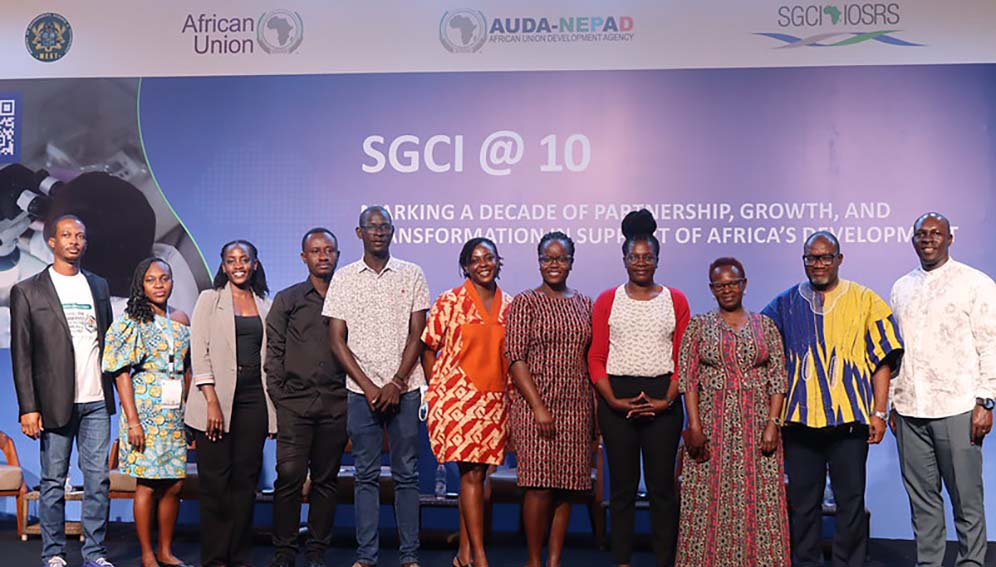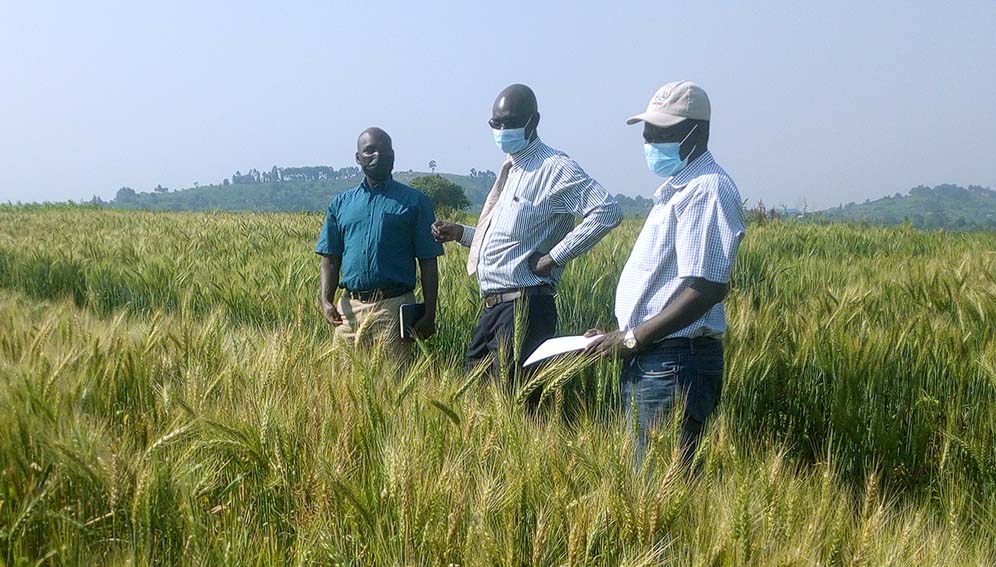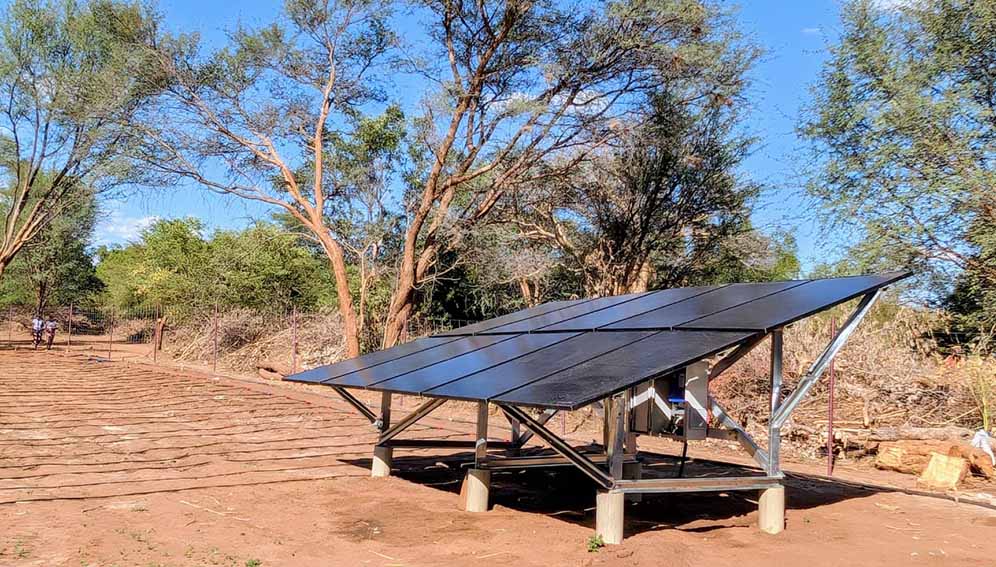SGCI News
[LAGOS] Researchers in Nigeria have developed a solar-powered biosensor filtration device that detects and removes killer germs in water, making it safe to drink. Nigeria faces a severe water crisis,…
- Researchers in Nigeria develop solar-powered biosensor to detect harmful bacteria in water
- Filtration device was designed to curb waterborne diseases, particularly in rural areas
- Entrepreneurs are needed to produce the low-cost tool
[LAGOS] Researchers in Nigeria have developed a solar-powered biosensor filtration device that detects and removes killer germs in water, making it safe to drink.
Nigeria faces a severe water crisis, with an estimated 70 per cent of water at the point of consumption contaminated, according to UNICEF.
The UN children’s agency says 117, 000 children under five die each year in Nigeria as a result of waterborne diseases — the highest number of any country in the world.
To address the problem in both rural and urban areas, researchers have developed a solar-powered filtration device, which can be used even in areas with limited electricity.
The device uses a biosensor to detect harmful organisms, while a three-layer filtration system harnesses ultraviolet rays to purify the water and remove any harmful germs.
“Our goal is to prevent waterborne illnesses and deaths,” said Victor Nwaugo, lead researcher and professor of environmental pollution and public health at Abia State University, Nigeria.
“The biosensor device purifies water and makes it ready for drinking at all times.”
Only ten per cent of Nigeria’s population has access to basic water, sanitation, and hygiene services, according to official figures.
“Those living in rural areas are three times more disadvantaged than those in urban areas,” said Nwaugo.
He said the durable, easy-to-use biosensor filter will give people in these rural areas access to safe drinking water, reducing their risk of contracting waterborne diseases.
Unlike existing water solutions that rely on grid electricity and simple filtration, the device combines germ detection with multi-stage purification, using only solar energy.
The device can be connected to taps in urban homes, or streams, the main water source in rural communities.
Research for impact
The project, backed by a US$250,000 grant from the Science Granting Councils Initiative (SGCI), reflects a shift in Nigeria’s research culture, according to Nwaugo.
“Before, we were doing research for publication, but now we are doing research for impact on society,” he said.
Nwaugo and his team’s biosensor filter gained attention last February at the Research for Impact (R4i) initiative, organised by Nigeria’s Tertiary Education Trust Fund (TETFund), a Nigerian agency responsible for funding higher education and supporting research initiatives.
Hadiza Ismail, deputy director of the TETFund Research and Development Centre, says R4i aims to empower researchers to transform their research findings into innovative solutions to real-world problems.
“The initiative will help researchers commercialise their work and create an impact on society,” she said.
Moses Olutoye, a professor of chemical engineering who specialises in renewable energy research at the Federal University of Technology, in Minna, Nigeria, commended the innovation.
“Solar energy is abundant and is waiting to be tapped for individual, household, and industrial use,” he said.
“Solar energy can help Nigerians and researchers meet their energy needs. It will take people away from the trauma of witnessing poor electricity and frequent national grid collapses.”
Scaling up
The researchers hope to market their product in the coming months and are working with the Abia state government to connect with entrepreneurs to manufacture the device.
“We are also in talks with the Aba Chamber of Commerce and the Umuahia Chamber of Commerce to further scale up,” said Nwaugo.
“The final product will be made suitable for offices, farms, and households as it will be produced in different sizes,” he added.
Olusola Bamisile, a renewable energy and sustainability scientist at the University of Dundee, United Kingdom, says supportive policies are needed to help scale up projects such as this.
“Policies that would encourage private investors to invest in Nigeria should be put in place, he said, adding: “Nigeria’s electricity market is one of the untapped economic powers of the country.”
This article was written by Jesusegun Alagbe
Related News
SGCI 2026: Strengthening science granting councils for leadership
As African countries confront increasingly complex development challenges ranging from climate change and health security to food systems, digital transformation, and economic diversification, the need for strong, responsive national science funding institutions has never been more urgent. Science granting councils sit at the centre of…
In case you missed it: Stories driving science impact across Africa
As the Science Granting Councils Initiative (SGCI) prepares to roll out a new phase of activities, we revisit some of our most-read stories highlighting how stronger research systems, innovation, and climate-resilient science are delivering impact across Africa. From strengthening national research systems and financing mechanisms…
Towards 2026: African innovations pointing to what comes next
As we step into 2026, research-driven innovation continues to shape how communities respond to long-standing development challenges, from health and food security to climate resilience, jobs, and sustainable industry. Backed by the Science Granting Councils Initiative (SGCI), these projects show how local science, when aligned…
SGCI funded projects
Rwanda’s integrated approach to sustainable agriculture and nutrition
Project Titles & Institution Areas of Research Number of Projects being funded Project Duration Grant Amount In-Kind Distribution Council Collaboration with other councils





